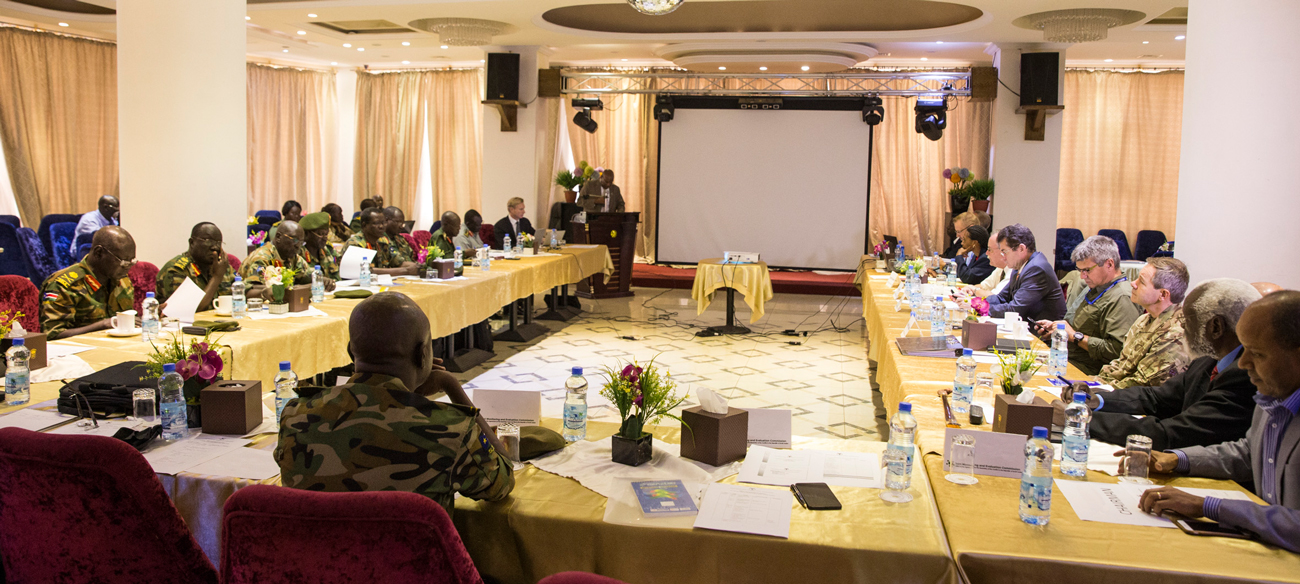Elite Strategies in Transition Processes
The research project Supporting or Resisting Change: Elite Strategies in War to Peace and Political Transitions investigates the strategies elite actors apply in order to influence political change in support of or in resistance to political change processes.
The project focuses in particular on the objectives elite actors pursue, and the approaches they use in order to achieve them. To this end, it reconstructs the patterns of elite behaviour across 43 peace and transition processes from our qualitative database. This work builds on previous case study research conducted in the framework of the Graduate Institute’s multi-year project, “Broadening Participation in Political Negotiations and Implementation.”
Methodology
In the first stage of the project, 43 case studies from our database were screened and coded using Qualitative Data Analysis (QDA) software to identify elites’ patterns of behaviour according to elite type and phase. In the second stage, a smaller sample of 23 case studies were process traced in order to shed light on the dynamics between various elite strategies as well as the most significant contextual factors that shape them.
Key Findings
- Elites affect the processes and outcomes of peacemaking and political reform efforts in order to influence political change in their favour.
- Influential elites are not only political and military actors, but can also be powerful civil society actors and movements, as well as business representatives.
- Elites apply both “soft” and “hard” approaches, ranging from efforts to negotiate, influencing political views, shaping the political setting of a transition, to using force to undermine peacemaking efforts.
- Elite strategies and approaches vary across different phases of a transition process. The research determines five distinct phases of transition in which elites can influence political change in their favour, spanning from the events that trigger transitions through to the negotiation process and the implementation of different types of agreements.
- In each phase of a transition process the research identifies clusters of pro-change and anti-change elites. The elite actors within these clusters change from phase to phase, and even within phases, due to the evolution of elites’ objectives.
- International actors can influence elite behaviour by conditioning both elites’ resource base and their cost-benefit calculations regarding specific behaviours, notably through the threat or application of a mixture of positive and negative incentives.
- This research is relevant for policy and practice in helping to analyse and predict elite behaviour, and to develop more adaptive and effective national and international responses to support political change processes.
List of case studies
- Aceh peace negotiations 1999–2003
- Afghanistan Emergency Loya Jirga 2002, Constitutional Loya Jirga 2003–2004
- Benin political transition 1990–2011
- Burundi peace negotiations and implementation1996–2013
- Colombia peace negotiations 1998–2002
- Cyprus negotiations 1999–2004
- Darfur peace negotiations 2009–2013
- DR Congo Inter-Congolese Dialogue 1999–2003
- Egypt political transition 2011–2013
- El Salvador peace negotiations and implementation 1990–1994
- Eritrea constitution-making 1993–1997
- Fiji political transition/constitution-making 2006–2013
- Georgia-Abkhazia UN negotiations 1997–2007
- Guatemala peace process 1989–1999
- Israel-Palestine Geneva Initiative 2003–2013
- Israel-Palestine Oslo I 1991–1995
- Kenya post-election violence 2008–2013
- Kyrgyzstan political reforms 2013
- Liberia peace agreement and implementation 2003–2011
- Macedonia Ohrid peace process 2001–2013
- Mali political transition 1990–1992
- Northern Mali peace negotiation 1990–1996
- Mexico Chiapas uprising and peace process 1994–1997
- Moldova-Transnistria negotiations 1992–2005
- Nepal peace agreement and constitution-making 2005–2012
- Northern Ireland Belfast(Good Friday) and St. Andrews agreements 1998–2006
- Philippines Moro Islamic Liberation Front peace process 2010–2016
- PNG Bougainville peace negotiations 1997–2005
- Rwanda Arusha Peace Accords 1992–1993
- Solomon Islands Townsville Peace Agreement and constitution-making 2000–2014
- Somalia I National Peace Conference 1992–1994
- Somalia II Djibouti process 1999–2001
- Somalia III Kenya process (National Peace Conference) 2001–2005
- Somaliland post-independence violence negotiations 1991–1994
- South Africa political transition 1990–1997
- Sri Lanka ceasefire, peace negotiations and elections 2000–2004
- Tajikistan peace negotiations and implementation1993–2000
- Togo National Conference 1991
- Togo Inclusive Dialogue 2006
- Tunisia political transition and National Dialogue 2011–2016
- Turkey Armenia protocols 2008–2011
- Turkish-Kurdish peace process 2009–2014
- Yemen National Dialogue 2011–2014
Report,
Supporting or Resisting Change: Elite Strategies in War to Peace and Political Transitions
This report discusses strategies employed by national elites to influence political change during peace processes and political transitions. It presents a conceptual approach to analyse the behaviour of elites and offers examples from case studies.
February 2019Andreas Hirblinger, Suzanne van Hooff, Molly Kellogg, Thania Paffenholz,
Briefing Note,
Elite Strategies to Support or Resist Peace Processes and Political Transitions
This briefing note summarises the findings of the Elite Strategies in War to Peace and Political Transitions research project that explores how elites affect the processes and outcomes of peacemaking and political reform efforts.
March 2019IPTI,


